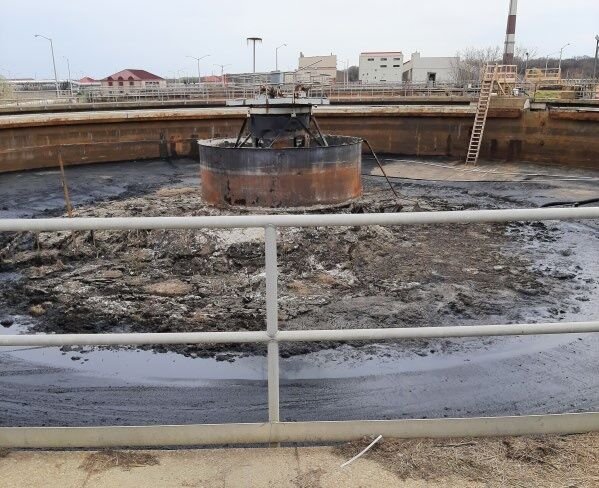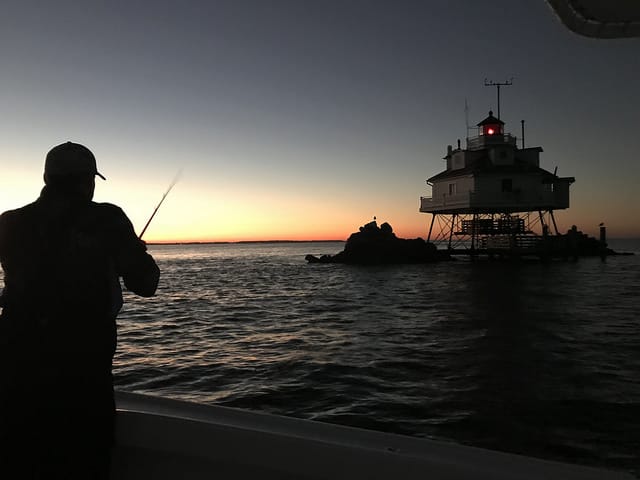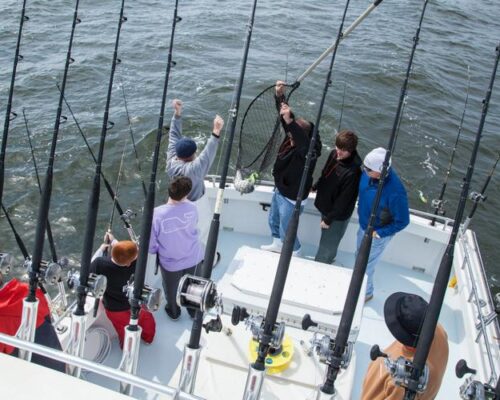By Timothy B. Wheeler, Bay Journal News Service
In a dramatic enforcement action, Maryland regulators moved Sunday to take over Baltimore’s troubled Back River sewage treatment plant after a weekend inspection found that city officials had failed to meet a 48-hour deadline to correct pollution violations and worsening maintenance problems found in an inspection late last week.
Environment Secretary Ben Grumbles directed the Maryland Environmental Service (MES) to run the plant, the state’s largest, after finding the city had failed to comply with an order issued Thursday to immediately cease illegal discharges of inadequately treated wastewater and to bring the plant into full compliance with its state-issued permit within 48 hours.
The MES is a not-for-profit business unit of the state that, according to its latest annual report, runs 89 mostly small municipal, county and privately owned wastewater facilities, as well as state-owned plants at prisons, hospitals, highway rest areas and state parks.
Grumbles issued a statement saying that he was taking this step because of “ongoing and escalating problems” at the wastewater plant that he said “present an unacceptable threat to the environment and public health.”
The directive cited a provision in state law empowering the environment secretary, in cases where an order has not been followed, to have the MES take over a facility’s operation, with all costs incurred by the service to be covered by the municipality.
Grumbles had issued the deadline to the city after a March 22 inspection that found treatment equipment throughout the plant broken down or in poor condition, leading to multiple discharge violations of excessive solids and nutrient pollution. Only two of 11 primary settling tanks—half the number that plant staff said were absolutely needed to treat waste adequately—were functioning properly, the inspector reported, while other treatment tanks were clogged with scum and vegetation.
A new inspection after the deadline on Saturday found the corrective actions ordered two days earlier had not been completed and violations continued. In addition to the lack of adequate settling tanks, the inspector found only 15 to 48 sand filters used near the end of the treatment process to be functioning. He reported that the plant’s discharge to Back River, a Chesapeake Bay tributary, was “grey in color with some turbidity.”
A photo taken of the shoreline near the plant’s discharge outfall showed what the inspector described as “heavy dark sediments” and a few dead fish.
MDE already is in court seeking to force the city to remedy problems at Back River, as well as its Patapsco treatment plant, which are Maryland’s two largest sewage treatment facilities. The state agency filed suit in January alleging multiple ongoing discharge violations. The lawsuit, pending in Baltimore City Circuit Court, seeks civil penalties and an injunction requiring the city to take “all steps necessary” to come into compliance with its state-issued permits.
Nonprofit water monitoring watchdog group Blue Water Baltimore had also filed a lawsuit of its own in U.S. District Court in December alleging ongoing violations at two sewage plants. That case is also pending.
Alice Volpitta, Blue Water Baltimore’s Harbor Waterkeeper, welcomed emergency state oversight of the Back River plant as a “short-term solution that is necessary to avert imminent disaster.”
“Typically, we are in favor of local municipalities retaining control over their utilities and assets,” she said, “But it’s become really obvious that the city is not adequately maintaining or operating these facilities.”
Volpitta said MDE’s March 22 inspection followed complaints from local residents about dead fish in Back River and a suspected raw sewage spill. She said her group analyzed a river water sample at the behest of the Back River Restoration Committee, a local watershed group. Although that test did not detect high bacteria counts, she said the local outcry evidently spurred MDE to check on the plant’s condition.
“At the end of the day,” Volpitta said, “what we truly need is a third-party entity to come in and do a top-down analysis so we can get an independent analysis of what is broken and what needs to be fixed and in what order.”
Grumbles’ Sunday order directed the MES to undertake a comprehensive assessment of the plant’s operations, maintenance, staffing and equipment and to report its findings and recommendations by June 6.
The MDE press release issued Sunday evening said that Grumbles had spoken Friday by phone with Baltimore Mayor Brandon Scott about the problems at both the Back River and Patapsco wastewater plants.




